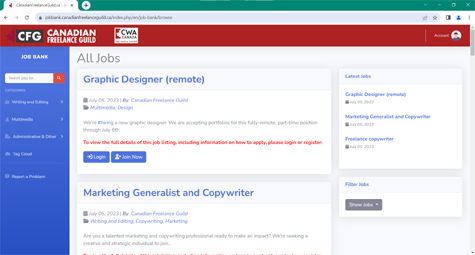This series of posts by the Born Freelancer shares personal experiences and thoughts on issues relevant to freelancers. Have something to add to the conversation? We’d love to hear from you in the comments.

In my previous column, on Ageism, I began to discuss options for mature or soon-to-be-considered-mature freelancers put out of work due to unbridled prejudice against their age.
It seems to me a tragic waste if all our irreplaceable experience should be lost, forgotten, or simply ignored.
Another option is to channel our experience into a sharing opportunity with those younger and less experienced.
In a word: Teaching.
Traditional venues
Once upon a time, it was relatively easy for an experienced professional to move into the rarified world of academia.
Conventional institutions of higher learning—colleges, universities, etc.—all hired those with knowledge and insights into the industry you have had experience in.
Today, it is not so easy. The competition is fierce and the requirements for even contract jobs have become more and more stringent. Most require teacher union membership.
If you are seeking a conventional academic position it is considered essential to have a university degree or two. Many jobs require a PhD if you intend to move up the academic ladder. The exception: most community colleges place more emphasis on professional experience than paper. They are generally more receptive to industry veterans looking to teach. But available positions may still prove elusive.
Should you feel the need, you could consider upgrading your qualifications. Many institutions offer reduced rates or even free courses for mature students.
Of course, time may be against you. By the time you've completed such courses, you might be fighting the Ageism also endemic in the world of academia.
Guest lecturing—another option
Having done your research on suitable institutions, phone the relevant department heads and senior profs and/or lecturers. Explain your qualifications and interest in guest lecturing. Follow up with an email recounting your career and skill sets. Send them a copy of any book you've published—we will discuss this again in a moment—and express interest to come in for a personal chat.
During pandemic times, a video call might suffice.
Once there, get specific. You'll have competition. Offer as many topics as you feel comfortable teaching. You'll want to prepare this list with an outline of how you plan to approach each topic. You should also prepare at least one full length lecture with which you may "audition."
The point is to get "in." Once "in" keep your eyes and ears open. Make friends with the department office manager. They always know what is going on. If you are good and become well-liked, you may even get a shot at a short-term contract. If you get the chance, join their union. You'll be paid better, if that is your goal.
Otherwise, of course, there are no guarantees. As a freelancer you are already used to that.
Content creation
Consider: Someone has to create course content. Its teacher is not always its creator.
This may surprise some of you. I know it surprised me.
So offer to create course content. Your experience will allow an established prof or lecturer to impart your knowledge as part of their established courses or else as the bulk of a new course.
I've worked both sides. I've been offered teaching positions at the community college level with already-created content. In short, they were looking for a working professional to front it. Conversely, I have created course content at university level for tenured profs to teach who didn't have the time or personal background to research my areas of expertise. Both can be extremely satisfying endeavours.
All fees are negotiable.
More opportunities
I mentioned sending out a copy of your book. Nothing impresses the academic world more than being published. It's also another laudable way to convey your experience and knowledge. In short, to teach. It might also be your ticket into guest lecturing at various public libraries and high schools, also worth investigating.
Check out my posts on self-publishing if this interests you.
Teaching, however, isn't confined to traditional institutions and books. Don't overlook organizations offering educational content online only. A quick search will give up many. Why not approach some and pitch your best guest lecture? Unions, professional organizations and guilds are a fine place to start. Don't care to be moderated? Set up your own content on any appropriate online platform. Build it and they will come.
The takeaway
We all remember good teachers who inspired us—as well as lousy ones who killed our enthusiasm.
What separates average or lousy teachers from the good and great is "heart." It's the passion to share what you have learned with others.
If you don't have it, please don't bother. There are already too many mediocre teachers.
Teaching can take many forms and use many media.
But true teaching isn't simply a matter of transferring information from one brain into another or many.
It's about building and inspiring passion for a subject.
It's about sharing personal experiences in such a way that they motivate others to want to try similar but different pursuits.
And perhaps, most importantly, for some of us…
It's about the giving of our very best in the hope that it will not all be lost, forgotten or simply ignored once we are gone.
If you are a Canadian Freelance Guild Member, you are welcome to propose an idea for a professional development webinar for your colleagues. Login to the CFG homepage and go the Webinars page. At the top of the page you'll find a "Suggest A Webinar" button. Click on it to fill out a form with your idea(s). Members who end up presenting a webinar can receive an honorarium or an extension to their membership for a full year.
POSTSCRIPT…A belated thank you to our former editor, Rachel, for her many years of guidance, inspiration and great kindness. If you have ever enjoyed or learned from even one of most of my previous 140 posts, please know that she had somehow made it better. I look forward to hearing much distinctive journalism from her elsewhere in the future.
Had any experience teaching after working in media? Any memories of a teacher who especially inspired you to pursue your freelance career? Why not share with the rest of us, using the comments feature below.




